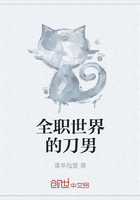"Set and his fires," he called after me. "I wonder what they are like, Ana. Perhaps one day we shall learn, you and I together, Scribe Ana."So Ki took up his abode with us, in the same lodgings as Bakenkhonsu, and almost every day I would meet them walking in the garden, since I, who was of the Prince's table, except when he ate with the lady Merapi, did not take my food with them. Then we would talk together about many subjects. On those which had to do with learning, or even religion, I had the better of Ki, who was no great scholar or master of theology. But always before we parted he would plant some arrow in my ribs, at which old Bakenkhonsu laughed, and laughed again, yet ever threw over me the shield of his venerable wisdom, just because he loved me I think.
It was after this that the plague struck the cattle of Egypt, so that tens of thousands of them died, though not all as was reported. But, as I have said, of the herds of Seti none died, nor, as we were told, did any of those of the Israelites in the land of Goshen. Now there was great distress in Egypt, but Ki smiled and said that he knew it would be so, and that there was much worse to come, for which I could have smitten him over the head with his own staff, had I not feared that, if I did so, it might once more turn to a serpent in my hand.
Old Bakenkhonsu looked upon the matter with another face. He said that since his last wife died, I think some fifty years before, he had found life very dull because he missed the exercises of her temper, and her habit of presenting things as these never had been nor could possibly ever be. Now, however, it grew interesting again, since the marvels which were happening in Egypt, being quite contrary to Nature, reminded him of his last wife and her arguments. All of which was his way of saying that in those years we lived in a new world, whereof for the Egyptians Set the Evil One seemed to be the king.
But still Pharaoh would not let the Hebrews go, perhaps because he had vowed as much to Meneptah who set him on the throne, or perhaps for those other reasons, or one of them, which Ki had given to the Prince.
Then came the curse of sores afflicting man, woman, and child throughout the land, save those who dwelt in the household of Seti.
Thus the watchman and his family whose lodge was without the gates suffered, but the watchman and his family who lived within the gates, not twenty paces away, did not suffer, which caused bitterness between their women. In the same way Ki, who resided as a guest of the Prince at Memphis, suffered from no sores, whereas those of his College who remained at Tanis were more heavily smitten than any others, so that some of them died. When he heard this, Ki laughed and said that he had told them it would be so. Also Pharaoh himself and even her Highness Userti were smitten, the latter upon the cheek, which made her unsightly for a while. Indeed, Bakenkhonsu heard, I know not how, that so great was her rage that she even bethought her of returning to her lord Seti, in whose house she had learned people were safe, and the beauty of her successor, Moon of Israel, remained unscarred and was even greater than before, tidings that I think Bakenkhonsu himself conveyed to her. But in the end this her pride, or her jealousy, prevented her from doing.
Now the heart of Egypt began to turn towards Seti in good earnest. The Prince, they said, had opposed the policy of the oppression of the Hebrews, and because he could not prevail had abandoned his right to the throne, which Pharaoh Amenmeses had purchased at the price of accepting that policy whereof the fruits had been proved to be destruction. Therefore, they reasoned, if Amenmeses were deposed, and the Prince reigned, their miseries would cease. So they sent deputations to him secretly, praying him to rise against Amenmeses and promising him support. But he would listen to none of them, telling them that he was happy as he was and sought no other state. Still Pharaoh grew jealous, for all these things his spies reported to him, and set about plots to destroy Seti.
Of the first of these Userti warned me by a messenger, but the second and worse Ki discovered in some strange way, so that the murderer was trapped at the gate and killed by the watchman, whereon Seti said that after all he had been wise to give hospitality to Ki, that is, if to continue to live were wisdom. The lady Merapi also said as much to me, but I noted that always she shunned Ki, whom she held in mistrust and fear.















